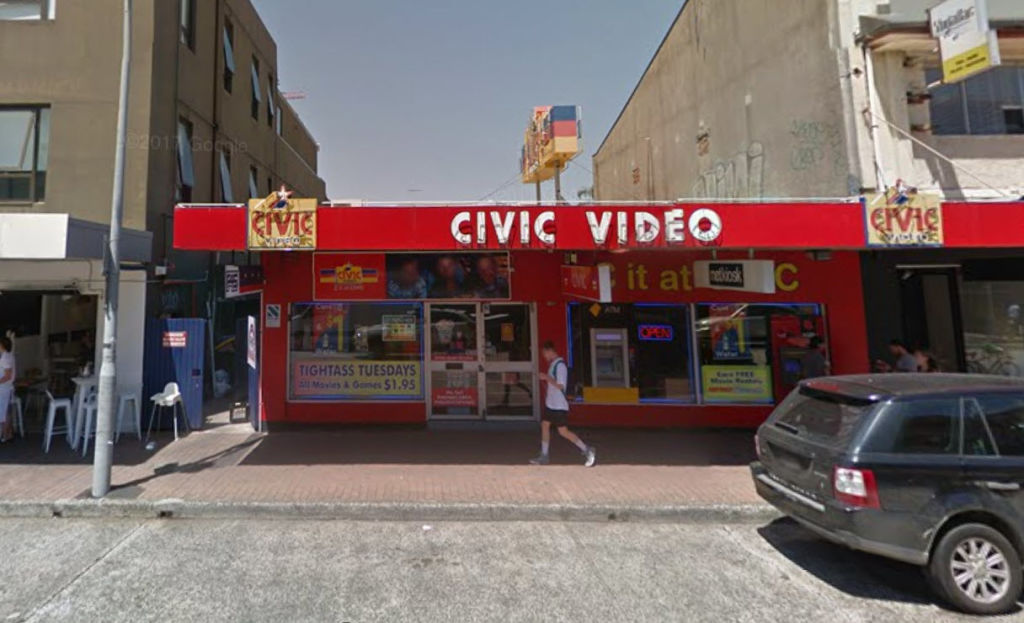
How the last video stores are surviving in the age of Netflix
With the seemingly unstoppable rise of streaming and online piracy, the remaining video stores in Australia have been forced to appeal to niche audiences and novel techniques to survive.
In 2001 there were about 2600 video stores around the country, according to the Australian Video Rental Retailers Association (AVRRA). By the end of last year that number had dwindled to 750.
At its peak there were more than 500 Video Ezy stores alone around Australia. Now there are fewer than 40.
Last month the last remaining Blockbuster store in Sydney closed down, and in October last year the AVRRA itself folded.
But despite the continual closures and gloomy outlook, a handful of video stores are still hanging on in the face of the overwhelming growth of online streaming companies such as Netflix and Stan, and the popularity of illegal downloading.
Jeanette Bresaz has been working at DVD Collection, a boutique video store in the Melbourne CBD, for more than 20 years.
In that time, the store has gone from operating its own large space to sharing a shop with two other tenants.
“The only way we survived was by downsizing,” Bresaz says. “We were in the same shop for 20 years but the lease was up and the rent was increased so we started subletting in the shop next to us.”
The store survives by catering to its two core demographics: older people who don’t use the internet to buy movies, and hardcore collectors looking for niche titles.
“The only reason we’re still going is that we have loyal customers who have been coming to us for years,” she says. “We have stock on shelves but we mostly operate on ordering in things they can’t get at other stores.
“That’s how we’ve managed to keep going. A lot of our customers are over 60 and don’t want to go online. It’s easier for them to come in and get it from us, and more often than not it’s for the same price.”
In Sydney the owner of several Civic Video stores, John Price, has also been forced to come up with new ways to keep the doors open.
Although he is closing his stores in Armidale, in northern NSW, and Newtown, in inner Sydney, both of which have been trading for more than 20 years, the others that he runs in Sydney – in Bondi, Five Dock and West Ryde – will keep trading for the foreseeable future.
“It [the Newtown store] had declined compared to what it used to be, but it was still a very profitable store,” Price says. ”But I couldn’t take the punt that it could remain profitable and be stuck in a lease paying $150,000 a year.
”But I’ve got no plans to close any others at this stage. The market will determine how long they stay there for, if people come and support us they’ll stay there.”
In order for his other stores to remain profitable, Price has reduced the footprint of each, subletting unused sections to other businesses, including an F45 gym and a bakery. He’s also diversified into offering toys and ice creams.
“We’ve tried all that sort of stuff, we’ve got little things in that might be the craze of the moment… that help remain sustainable,” Mr Price said.
But CBRE’s head of retail brokerage leasing Leif Olsen isn’t optimistic for the future of video stores in Australia.
“It’s a sector that has been through a lot of disruption, with streaming services becoming more and more prevalent in the market today. Now there’s no need to go out and hire a video,” Olsen says.
“I couldn’t think of the last time I was in a video store or when I’ll need to go into one again.”
He says the video stores that will survive are those that follow the lead from cinemas and adapt.
“You have to reinvent yourself,” Olsen says. “Movie theatres have reinvented by having Gold Class and adding on food and beverage services to make it more of a treat and experience. They’ve been disrupted by the same things but have reinvented themselves.
“People are after authenticity and special experiences now, and they are willing to spend money on that.”
with Jack Needham












